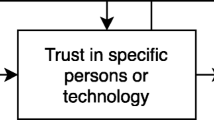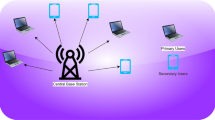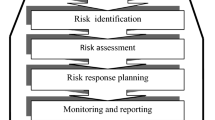Abstract
An ad-hoc network is a set of limited range wireless nodes that function in a cooperative manner so as to increase the overall range of the network. Each node in the network pledges to help its neighbours by passing packets to and fro, in return of a similar assurance from them. All is well if all participating nodes uphold such an altruistic behaviour. However, this is not always the case and often nodes are subjected to a variety of attacks by other nodes. These attacks range from naive passive eavesdropping to vicious battery draining attacks. Routing protocols, data, battery power and bandwidth are the common targets of these attacks. In order to overcome such attacks a number of routing protocols have been devised that use cryptographic algorithms to secure the routing mechanism, which in turn protects the other likely targets. A limiting requirement regarding these protocols is the reliance on an omnipresent, and often omniscient, trust authority. In our opinion, this reliance on a central entity is against the very nature of ad-hoc networks, which are supposed to be improvised and spontaneous. We present in this paper, a trust-based model for communication in ad-hoc networks that is based on individual experience rather than on a third party advocating trust levels. The model introduces the notion of belief and provides a dynamic measure of reliability and trustworthiness in pure ad-hoc networks.
Similar content being viewed by others
References
E.M. Royer and C.K. Toh, “A Review of Current Routing Protocols for Ad-Hoc Mobile Wireless Networks”, IEEE Personal Communications Magazine, Vol. 6, No. 2, pp. 46–55, 1999.
B. Awerbuch, D. Holmer, C. Nita-Rotaru, and H. Rubens, “An On-Demand Secure Routing Protocol Resilient to Byzantine Failures”, Proceedings of the ACM Workshop on Wireless Security (WiSe), 2002.
A.A. Pirzada and C. McDonald, “A Review of Secure Routing Protocols for Ad-hoc Mobile Wireless Networks”, Proceedings of the 7th International Symposium on DSP for Communication Systems (DSPCS) and 2nd Workshop on the Internet, Telecommunications and Signal Processing (WITSP), pp. 118–123, 2003.
A.A. Pirzada, A. Datta, and C. McDonald, “Propagating Trust in Ad-hoc Networks for Reliable Routing”, Proceedings of the International Workshop on Wireless Ad-hoc Networks (IWWAN), 2004a.
R.C. Mayer, J.H. Davis, and F.D. Schoorman, “An Integrative Model of Organizational Trust”, Proceedings of the Sixth annual ACM/IEEE International Conference on Mobile Computing and Networking, Vol. 20, No. 3, pp. 709–734, 1995.
A. Josang, “The Right Type of Trust for Distributed Systems”, Proceedings of the ACM New Security Paradigms Workshop, pp. 119–131, 1996.
D. Denning, “A new Paradigm for Trusted Systems”, Proceedings of the ACM New Security Paradigms Workshop pp. 36–41, 1993.
Y.C. Hu, A. Perrig, and D.B. Johnson, “Ariadne: A Secure On-Demand Routing Protocol for Ad-Hoc Networks”, Proceedings of the Eighth Annual International Conference on Mobile Computing and Networking (MobiCom), pp. 12–23, 2002.
B. Dahill, B.N. Levine, E. Royer, and C. Shields, “A Secure Routing Protocol for Ad-Hoc Networks”, Proceedings of the International Conference on Network Protocols (ICNP) pp. 78–87, 2002.
A. Perrig, Y.C. Hu, and D.B. Johnson, “Wormhole Protection in Wireless Ad-Hoc Networks”, Technical Report TR01-384, Department of Computer Science, Rice University, 2001.
Y.-C. Hu, A. Perrig, and D.B. Johnson, “Rushing attacks and defense in wireless Ad-Hoc network routing protocols”, Proceedings of the 2003 ACM workshop on Wireless Security, pp. 30–40, 2003.
A.A. Rahman and S. Hailes, “A Distributed Trust Model”, Proceedings of the ACM New Security Paradigms Workshop, pp. 48–60, 1997.
L. Zhou and Z.J. Haas, “Securing Ad-Hoc Networks”, IEEE Network Magazine, Vol. 13, No. 6, pp. 24–30, 1999.
S. Garfinkel, PGP: Pretty Good Privacy, O'Reilly and Associates, Inc., 1995.
J.P. Hubaux, L. Buttyan, and S. Capkun, “The Quest for Security in Mobile Ad-Hoc Networks”, Proceedings of the ACM Symposium on Mobile Ad-Hoc Networking and Computing (MobiHoc), pp. 146–155, 2001.
F. Stajano and R. Anderson, “The Resurrecting Duckling: Security Issues for Ad-Hoc Wireless Networks”, Proceedings of the 7th International Workshop on Security Protocols, pp. 172–194, 1999.
S.P. Marsh, “Formalizing Trust as a Computational Concept”, Ph.D. Thesis, University of Stirling, 1994.
A.A. Pirzada, A. Datta, and C. McDonald, “Trustworthy Routing with the AODV Protocol”, Proceedings of the International Networking and Communications Conference (INCC), pp. 19–24, 2004.
D.B. Johnson, D.A. Maltz, and Y. Hu, “The Dynamic Source Routing Protocol for Mobile Ad-Hoc Networks (DSR)”, IETF MANET, Internet Draft (Work in Progress), 2003.
C. Perkins, E. Belding-Royer, and S. Das, “Ad-Hoc On-Demand Distance Vector (AODV) Routing”, IETF RFC 3591, 2003.
C.E. Perkins and P. Bhagwat, “Dynamic Destination-Sequenced Distance-Vector Routing (DSDV) for Mobile Computers”, Proceedings of the SIGCOMM Conference on Communications, Architectures, Protocols and Applications, pp. 234–244, 1994.
V. Park and S. Corson, “Temporally Ordered Routing Algorithm (TORA) Version 1 Functional Specification”, IETF MANET, Internet Draft (work in progress), 2001.
E. Gafni and D. Bertsekas, “Distributed Algorithms for Generating Loop-Free Routes in Networks with Frequently Changing Topology”, IEEE Transactions on Communications, Vol. 29, No. 1, pp. 11–18, 1981.
M.S. Corson and A. Ephremides: “Lightweight Mobile Routing Protocol (LMR), A Distributed Routing Algorithm for Mobile Wireless Networks”, Wireless Networks, 1995.
S. Corson, S. Papademetriou, P. Papadopoulos, V. Park, and A. Qayyum, “Internet MANET Encapsulation Protocol (IMEP) specification”, IETF MANET, Internet Draft (work in progress), 1999.
S. Jacobs and M.S. Corson, “MANET authentication architecture”, IETF MANET, Internet Draft (Work in Progress), 1999.
NS, “The Network Simulator”, http://www.isi.edu/nsnam/ns/, 1989.
A.A. Pirzada and C. McDonald, “Reliable Routing in Ad-hoc Networks Using Direct Trust Mechanisms (to appear)”, In: D.Z. Du and G. Xue (eds.), Advances in Wireless Networks and Mobile Computing, Springer, 2005.
S. Marti, T. Giuli, K. Lai, and M. Baker, “Mitigating Routing Misbehavior in Mobile Ad-Hoc Networks”, Proceedings of the Sixth Annual International Conference on Mobile Computing and Networking (MobiCom), pp. 255–265, 2000.
A.P. Tayal and L.M. Patnaik, “An Address Assignment for the Automatic Configuration of Mobile Ad-Hoc Networks”, Personal and Ubiquitous Computing, Vol. 8, No. 1, pp. 47–54, 2004.
M. Cremonini, E. Damiani, S.D.C.D. Vimercati, and P. Samarati, “Security, Privacy and Trust in Mobile Systems and Applications”, In: M. Pagani (ed.): Mobile and Wireless Systems beyond 3G: Managing New Business Opportunities. IRM Press, 2005.
Author information
Authors and Affiliations
Corresponding author
Additional information
Asad Amir Pirzada is presently doing his Ph.D. on trust and security issues in ad-hoc wireless networks at The University of Western Australia. His current research interests include wireless communications, networking, cryptography, real-time programming and data acquisition systems. He holds a BE Avionics from NED University Pakistan, a MSc Computer Science from Preston University USA and a MS Information Security from the National University of Sciences and Technology Pakistan.
Chris McDonald holds a B.Sc(Hons) and Ph.D. in Computer Science from The University of Western Australia, and currently holds the appointments of senior lecturer in the School of Computer Science & Software Engineering at UWA and adjunct professor in the Department of Computer Science at Dartmouth College, New Hampshire. Chris has recently taught in the areas of computer networking, operating systems, computer & network security, computer architecture, distributed systems programming and, together with these areas, his research interests include network simulation, ad-hoc & mobile networking, programming language implementation, open-source software.




